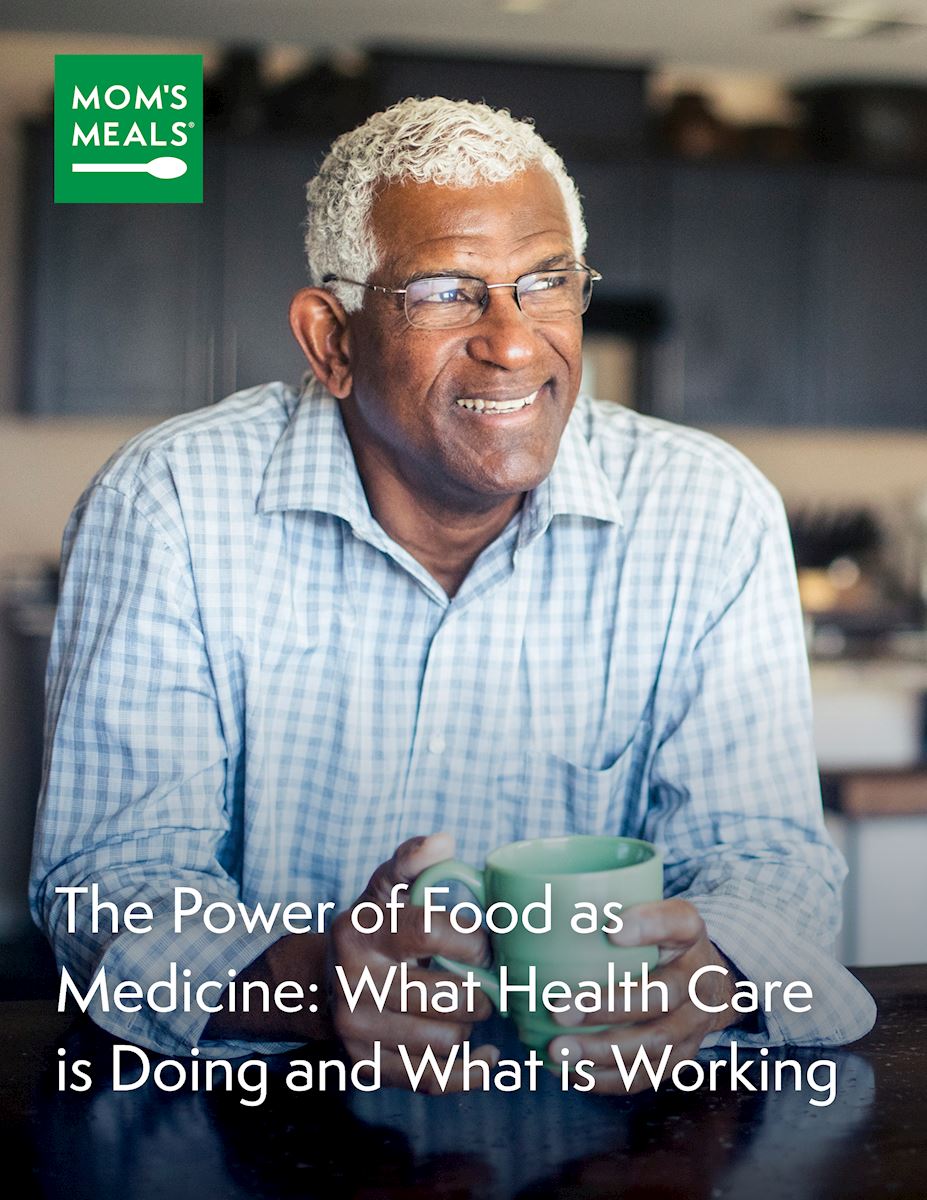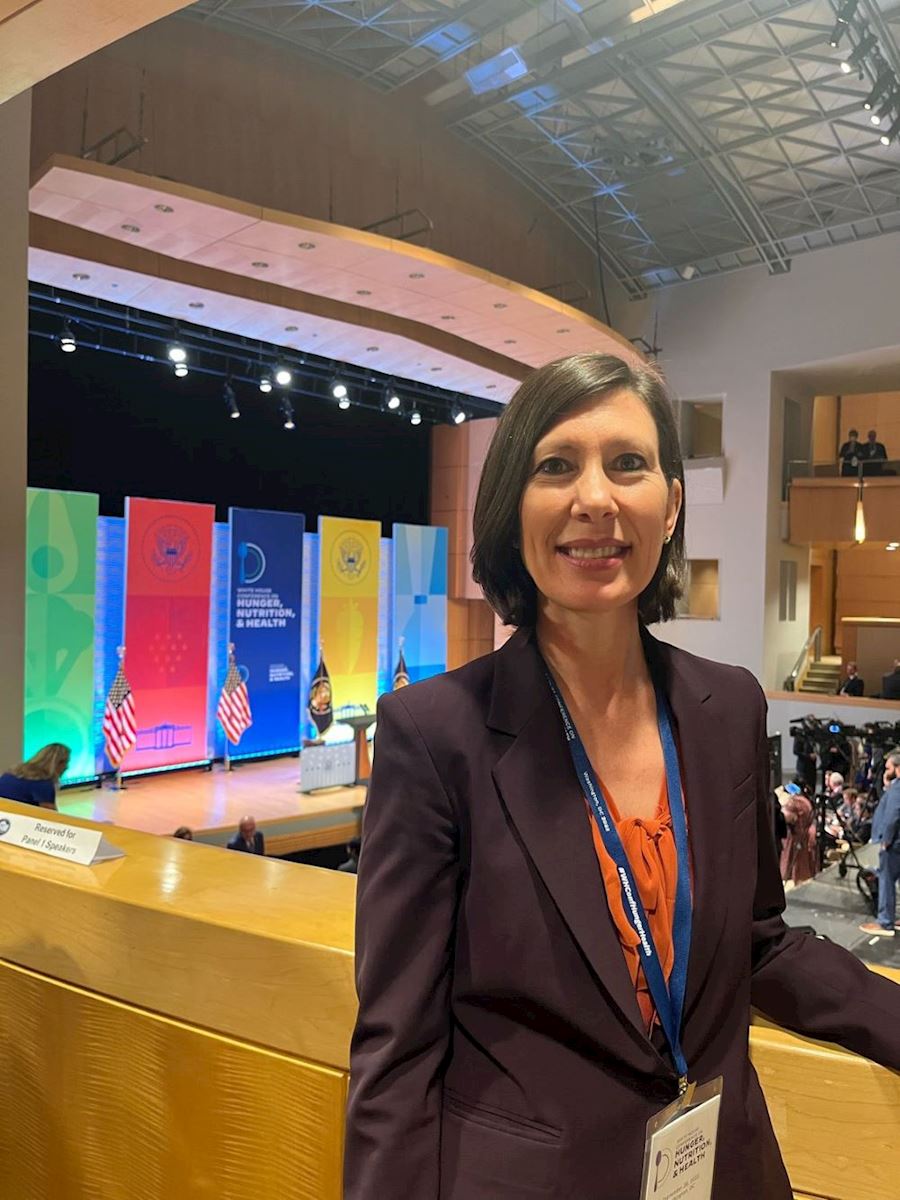In his opening remarks at the September 28, 2022, White House Conference on Hunger, Nutrition, and Health President Joe Biden voiced the need to work together to not only end hunger, but also reduce the burden of diet-related disease, which disproportionally impacts those without enough to eat.
Senator Corey Booker (D-NJ) echoed this call to action, noting that half of the U.S. population is diabetic or pre-diabetic and that one in three government dollars is spent on health care. Booker stated that “Food as Medicine” is common sense and that it can bend the cost curve and elevate human health. Booker said the food system can change to help reach these ends.
Catherine Macpherson, Mom’s Meals® senior vice president of healthcare strategy and chief nutrition officer, was among those invited to the conference — the first such event since 1969. With an ambitious stated goal of ending hunger by 2030, the White House conference captured the attention of a broad cross section of U.S. policymakers, public and private sector organizations, and other food equity advocates.
The conference included keynote speakers, panel discussions and time to work in small groups focused on the five pillars of the conference: Improve food access and affordability; Integrate nutrition and health; Empower all consumers to make and have access to healthy choices; Support physical activity for all; and Enhance nutrition and food security research. Macpherson shared her impressions and learnings from the event, and scope of the work that lies ahead to make its goals attainable.
Representative Jim McGovern (D-MA) called on those in attendance to leave the conference with an assignment, noted Macpherson. He said we all need to do our part. McGovern is a member of Congress who was the driving force behind the organization of the White House conference, along with Senators Booker and Mike Braun (R-IL), as well as the late Jacki Walorski (R-IN).
In many conversations before, during and after the conference, including a lunch hosted by the James Beard Awards Foundation featuring healthy fare prepared by chefs, Macpherson networked with passionate nutrition advocates in the public and private sectors who also feel a real call to action to end hunger and address the burden of diet-related disease in the U.S.
“I spoke with people working in Government, in clinical settings, in health care organizations, in community-based organizations, as well as nutrition researchers, patient advocates and representatives of youth organizations. All are doing nutrition-related work today, but eager to partner to do even more.”
A personal anecdote by New York City Mayor Eric Adams struck a chord and underscored the link between diet and disease, according to Macpherson. Adams told of his own struggle with diabetes, and how he reversed it through diet and lifestyle changes.
“He said that when you have a chronic condition, it essentially hijacks your life,” she recalls. “When people have these conditions, it impacts their ability to focus on other things, and that in turn impacts our ability to be a productive society and take care of ourselves. It is truly a national emergency.”
In the big picture, such societal issues can influence every facet of American life, and so the focus for many attendees was how to work together to bring solutions forward. In the afternoon, conference attendees joined a working group associated with the conference pillar where they wanted to focus. Macpherson joined the group focused on integrating nutrition into health care, as this is has been Mom’s Meals’ focus for more than 20 years. Roundtables of 10 people answered questions posed by a moderator from the Department of Health and Human Services, who documented ideas.
She says the sessions allowed for disparate groups of people who do not normally interact to collectively ‘connect the dots’ and put forward ideas and say, "Here's what we envision as solutions for integrating nutrition and health care."
Among the details of the conference’s five pillars, the administration said it will work with Congress to test medically tailored meals for the Medicare population, and test Section 1115 Demonstration waivers for medically tailored meals in the Medicaid population. If adopted as policy, both options would expand medically tailored meals to most people covered by a government payer.
As for other potential developments coming out of the conference, Catherine believes we will see changes to food labels and the Dietary Guidelines for Americans. In addition, we may see the emergence of a new single institute governing nutrition to make nutrition policy and programs — spanning several agencies including USDA, DHHS and FDA — easier to advance.
“It was an inspiring event — interacting with so many people from across the country who focus on nutrition,” Catherine reflects. “It’s an issue that touches absolutely everyone. As Senator Booker and Mayor Adams noted in their remarks, nutrition is the keystone to health and chronic condition management. We all need to partner on these issues and the solutions.”
Resource for you

Food as Medicine: What Health Care is Doing and What is Working.
Our free white paper takes a deeper look at the food as medicine concept, health equity and chronic disease issues, and approaches from public and private sectors. You will also learn how our nutritious home-delivered meals can help improve health outcomes while advancing health equity.


.jpg)
